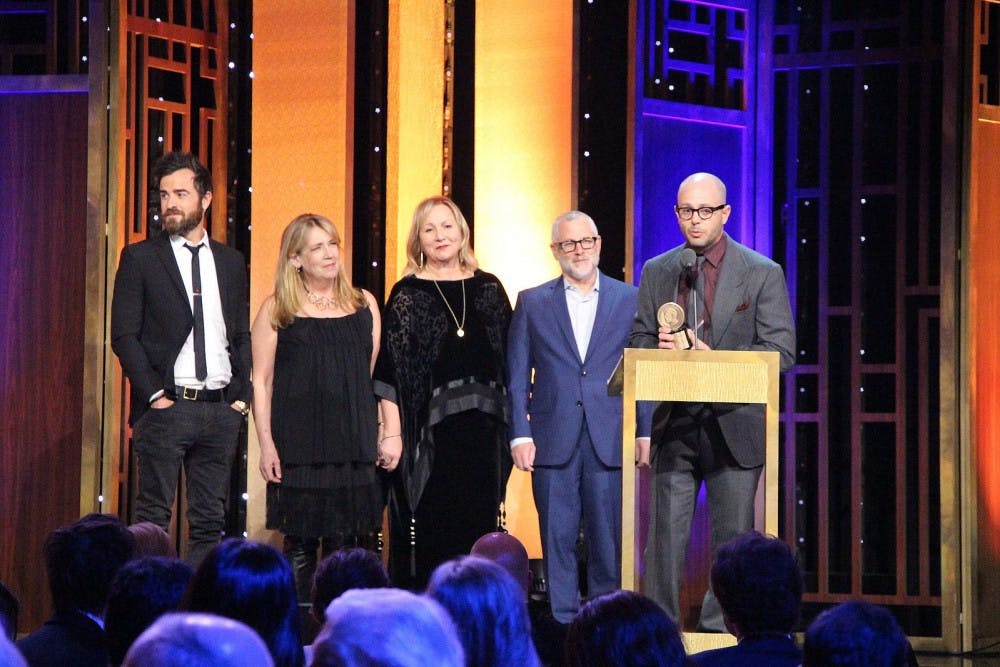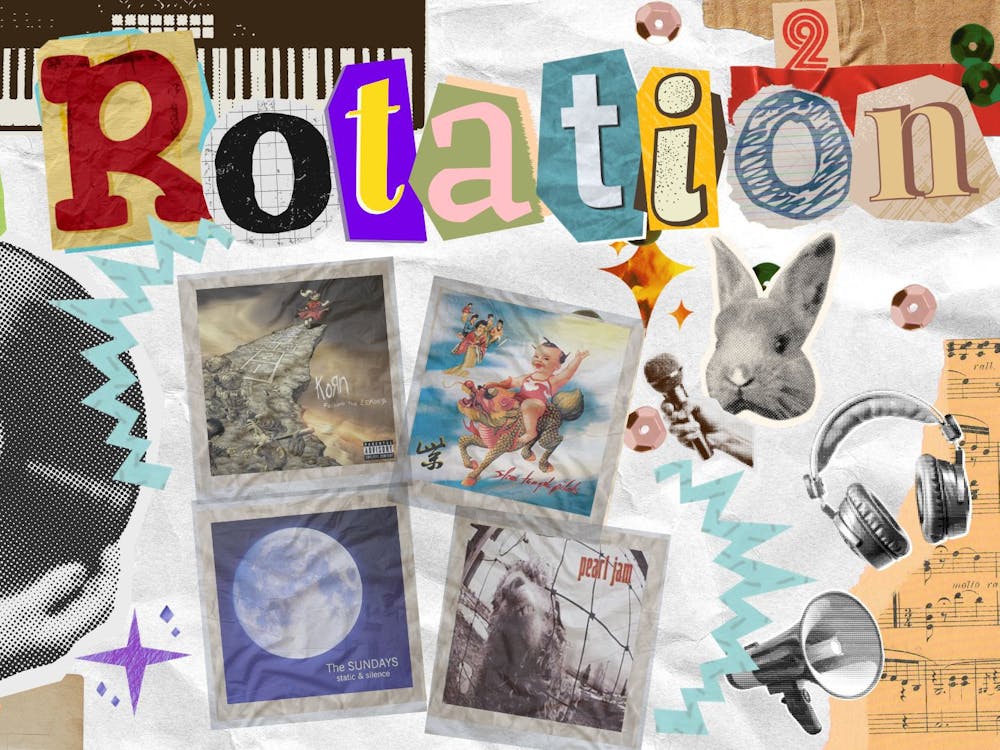Every end-of-year "best-of" television list you read over the next week or so is going to begin with a disclaimer. It's impossible to narrow it down to just five, or 10, or 25 of the best shows, critics will lament, citing the ever-sprawling world of Peak TV, when it's simply impractical for any one writer to watch enough of the shows out there to produce a fair ranking. Even if I had seen them all, they'll add, there's so much good TV out there these days that I can't possibly make room for all the episodes that deserve a spot on my precious list.
I say that's a cop-out.
Forget the fact that for every one show I complete, two get added to my queue.
Forget that even if I made laying in bed and watching Netflix my full-time job (and believe me, the thought has crossed my mind), I wouldn't scratch 10 percent of the fantastic programming out there.
Forget that I still haven't gotten around to phenomenal, award-worthy shows such as "Master of None," "The Handmaid's Tale," "Better Things" and "Insecure," and that there are other shows such as "The Crown," "One Day at a Time" and "Feud" that, while most likely spectacular, don't particularly interest me.
And forget that the very act of reducing the entire, diverse medium to a list of five or six episodes will inevitably neglect perennial powerhouses and notable newcomers such as "Better Call Saul, "Stranger Things," "Fargo," "American Vandal" and "Big Mouth."
Forget all of that. What I have produced here is the definitive, undeniable ranking of the best episodes of 2017, the installments that, for their originality or sheer brilliance, stood out among the over-cluttered landscape.
"BoJack Horseman"
"The Old Sugarman Place"
Netflix's animated series about the struggles of a depressed, alcoholic, washed-up sitcom star who's also an anthropomorphic horse, has a pattern of placing its best episodes toward the end of each season. Season four followed suit, with an eleventh episode that placed us within the addled mind of Bojack's tragically demented mother and somehow made us empathize with a character we'd seen only as an abusive and neglecting matriarch.
But the roots for that tour de force were planted in the season's actual best episode, its second, during which BoJack spends a winter hiding out in his family's rundown cottage in Michigan. As BoJack struggles against both the cold and his own destructive thoughts, the show carefully overlays his scenes with flashbacks to the 1960s, when his mother spent childhood summers there with her family. When her older brother dies in Vietnam, their picture-perfect American family deteriorates under an oppressive father and a mother who will do anything to feel something again. Featuring stellar guest voices from Jane Krakowski, Matthew Broderick and Lin-Manuel Miranda, "The Old Sugarman Place" becomes a beautiful yet heart-wrenching look at the beginnings of the tragic Horseman legacy.
"Crazy Ex-Girlfriend"
Enjoy what you're reading?
Signup for our newsletter
"Josh's Ex-Girlfriend is Crazy"
Rachel Bloom's musical dramedy about a New York lawyer who drops everything to move to California and rekindle things with her middle school sweetheart has managed to remain fresh and entertaining throughout its three seasons, using a blend of comedy, emotion and musical numbers to pick apart the social stigmas surrounding mental illness. Its third season has continued to amaze, initiating a grueling, yet realistic storyline which culminates in Rebecca's (Bloom) almost-successful suicide attempt, a plot point that was handled deftly so as not to glamorize the incident or trigger any viewers.
The preceding episode lays the groundwork for the attempt, showing a Rebecca who has hit bottom, eviscerating her friends in a mic-dropping, Gretchen Cutler-inspired roast before running away to a hostel. In an eerie homage to revenge classics like "Fatal Attraction" and "Swimfan," she stalks and terrorizes the man who left her at the altar in Season two before realizing, in a final, soul-crushing number with guest star Josh Groban, that "reality doesn't make narrative sense."
"The Leftovers"
"It's a Matt, Matt, Matt, Matt World"
Damon Lindelof's eight-episode final season to his under-watched HBO drama was a slow-burning, masterful meditation on the nature of loss, grief and hope, the closest thing to perfection I've seen on TV in years. Over its brief and beautiful run, the show, which explores how humanity would react if two percent of the population disappeared suddenly and inexplicably, posited some absolutely insane premises and managed to pull them off in a way that felt natural.
This episode is no exception. Determined to reach Australia before the seventh anniversary of "The Departure," the show's most stubborn and faithful character, Matt Jamison (Christopher Eccleston), buys passage on a ferry chartered from Tasmania. The other passengers? A sex-crazed cult that worships a real lion named Frasier. I can't imagine what it was like pitching this to a writers' room. It has weird bacchanal rituals, a man claiming to be God and a vicious lion mauling a guy to death. But it's also got thought-provoking conversations on faith and hope, and a satisfying conclusion to the arc of a character we've both loved and hated throughout the series. Only "The Leftovers" could have pulled this off, and it did so in spectacular fashion.
"The Good Place"
"Michael's Gambit"
I have to admit, at first I was disappointed by NBC's half-hour comedy about a woman who finds herself in heaven, even though she knows she should be somewhere a little farther south. Despite a promising cast and crew including Kristen Bell, Ted Danson and Michael Schur ("The Office," "Parks and Recreation"), the first few episodes felt bogged down by overly goofy characters and comedic dialogue that often missed the mark. But, on the suggestion of fellow fans, I pushed through the first season.
I'm glad I did. The final episode, which focuses on Ted Danson's Michael, the supervisor of the Good Place and all who reside there, pulls off one of the most successful twist endings I've seen in years, one that flips the show on its head while making you realize the groundwork had been subtly laid for it throughout the season. It sets the show up for a second season that has taken the new premise and continued to mine it for original comedic gold.
"Nathan For You"
"Finding Frances"
The most surprisingly heartwarming story of the year, Nathan Fielder's two-hour finale to his fourth season saw him utilizing the resources of his show (a comedic variety series that follows Fielder, a socially awkward entrepreneur, helping real L.A. businesses through elaborate and hilarious schemes) to help a Bill Gates impersonator find his long-lost love. The man, Bill Heath, let his high school sweetheart, Frances, get away decades ago when he came to L.A. to pursue a career in acting. Knowing only her name and the Arkansas high school she attended, the duo set out on an insane yet heartfelt odyssey to track her down.
Their saga has its fair share of Fielder-esque plots, from posing as the producers of "Mud 2" (a fake sequel to the 2012 Matthew McConaughey thriller) in order to access a high school's yearbook records to staging a "57-year" high school reunion to get leads on where Frances might be. But what shocked me the most was the incredible amount of thought and empathy that came out of this. Fielder is known for his mastery of cringe comedy, but he keeps a safe distance here, holding back when he needs to in order to let the tale of redemption speak for itself. At the end, we're left with an uplifting message on the meaning of true love, reality and happiness.




